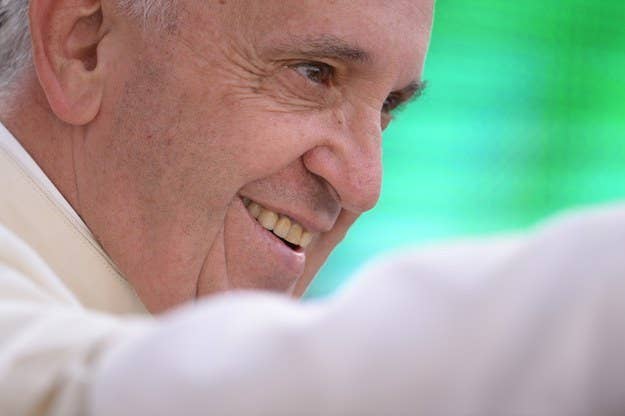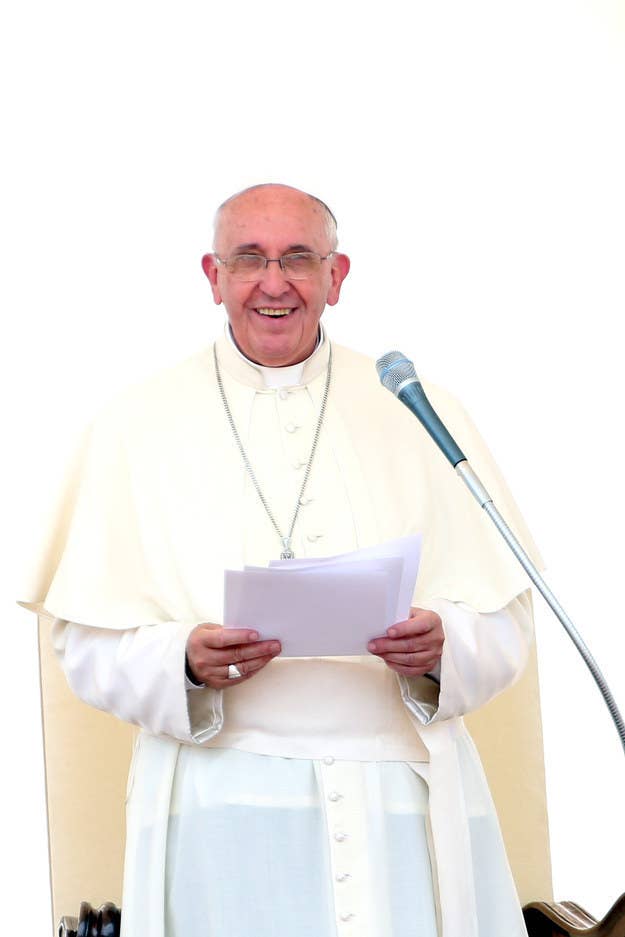
"The earth, our home, is beginning to look more and more like an immense pile of filth," Pope Francis said Thursday in a long-anticipated papal letter, or encyclical.
Calling for protecting the environment as the way to benefit the poor, the papal letter bids to turn climate politics from a global economic debate to a moral one.
Called Laudato Si, On the Care of Our Common Home, the encyclical echoes earlier criticism of mindless consumerism damaging the environment made by the pope and his predecessors.
Unlike past letters, this one will include a stark warning of dangers to the impoverished from global warming, which threatens farming, agriculture, and animal life in many of the poorest places on Earth, notably Africa, home to a burgeoning Catholic population.
On Monday, the Italian news outlet L'Espresso had leaked a draft of this letter. The encyclical differs from past Vatican pronouncements in its intended audience: people of all faiths worldwide. Encyclicals are typically the most authoritative of papal letters meant for discussion among the world's 1.1 billion Catholics.
"A very solid scientific consensus indicates that we are presently witnessing a disturbing warming of the climatic system," said the encyclical. "Humanity is called to recognize the need for changes of lifestyle, production and consumption, in order to combat this warming or at least the human causes which produce or aggravate it."
Last year was the warmest year on record, globally, coming at the end of the warmest decade on record dating back to the 1880s. According to estimates from last year's Intergovernmental Report on Climate Change, global average surface temperatures will likely rise from 4 to 10 degrees Fahrenheit by 2100, unless greenhouse gas emissions produced by burning coal, oil, and other fossil fuels are cut.
The pope's encyclical follows a drumbeat of prominent calls for cutting global greenhouse gas emissions ahead of a United Nations conference in Paris in December.
In January, the Pentagon warned of "immediate risks" from global warming. In May, major oil companies called on the U.N. to set greenhouse gas standards. President Obama has pledged to reduce U.S. emissions by at least 26% by 2025 toward an agreement.
"This is an enormous shift in framing on climate change, from a technocratic search for solutions to the much larger issue of how humanity should deal with the natural world in a good and just fashion," sociologist Robert Brulle of Drexel University in Philadelphia told BuzzFeed News.
"The pope is raising the stakes here. He's making it plain it's about the fundamental moral choice our global society is going to take."

The pope’s encyclical may help move public debate over global warming from a scientific to a moral basis, some observers suggest.
"We think the pope's encyclical may indeed promote greater public engagement in climate change," climate opinion expert Edward Maibach of George Mason University in Fairfax, Virginia, told BuzzFeed News by email. In past research over the last decade, some social scientists have concluded that leading political figures can help swing climate opinions among voters.
"The pope has managed to become the premier voice of ethical stances of many of the issues of the day and put himself forward in a way as a world spokesman," said sociologist Andrew Szasz of the University of California, Santa Cruz. "I think it can make a huge difference, if the bishops and the people in the pews actually hear the message."
There are some 65 million U.S. Catholics, according to the Pew Research Center. The previous pontiff, Pope Benedict, actually supported climate awareness campaigns in the church but those efforts faced sharply divided U.S. churchgoers, Szasz noted, with Latin American Catholics far more accepting of climate science than older white ones.
That split mirrors the sharply divided U.S. climate debate, which has largely split the political parties for decades, intensifying in the hard-fought 2000 election that pitted Vice President Al Gore, a climate science advocate, against George W. Bush, the eventual winner who supported only voluntary steps to cut emissions.
Because of that divide, not every expert who has studied climate opinion is convinced the encyclical will move the needle on climate opinion.
"I'm not sure his stance is going to convince the average person one way or the other," sociologist Eric Coleman of Florida State University told BuzzFeed News. "Our results do suggest that people who already accept climate change are more likely to accept the pope's moral authority on the issue and people who deny climate change are likely to reject the pope's moral authority."
While a majority of the U.S. public accepts that people are responsible for global warming according to Gallup polls, strongly conservative voters and many of their Republican representatives who now control the U.S. Congress have forcefully disputed steps to reduce emissions.
Politicians such as Sen. James Inhofe of Oklahoma have questioned both the costs of Environmental Protection Agency moves to reduce greenhouse gases from power plants, cars, and airplanes, as well as the science behind the cuts. With the release of the encyclical, Pope Francis will face many of those climate critics in Congress, in a speech scheduled in Washington, D.C., in September.
This post has been updated with the information from the official encyclical, rather than the version that leaked earlier this week.
